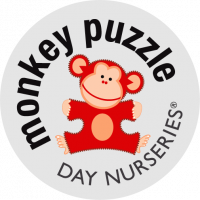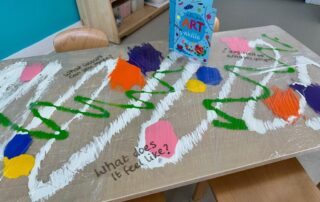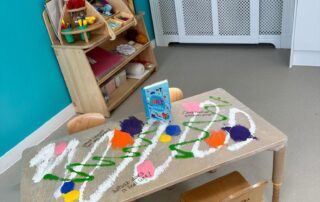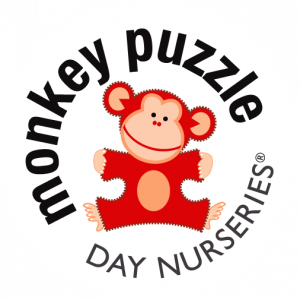Parents who play with their children form a stronger bond with them. Even simple games like scavenger hunts can become a special bonding moment for both parents and children. These interactions provide positive life experiences that stimulate children’s brain development.
Play is imperative in a child’s development, providing amazing opportunities for children to explore creativity and imagination, whilst also creating treasured family moments and opportunities for conversations and discussions between adults and children. After operating nurseries for many years, I would highly recommend play-based preschools and nurseries. I believe that they provide a better learning environment than other alternatives, weaving education into fun and helping to explore the world around you. It’s important to remember that every child is different when choosing Nursery and Preschool but parents should pay attention to how classes and structured learning are conducted, whether the “learn through play” approach is used, and how much free-play is allowed. Having seen the growth and development of the hundreds of children who have been in my care, I have some amazing tips to explain why play is so important and how you can help to continue this learning whilst playing and having fun at home.
Top 5 Tips for Playing at Home
1) Stimulate Brain Development:
For young children, play can promote development in many ways, including providing the child with a better understanding of the world and setting the groundwork for later brain growth.
- Singing and talking to your baby in a melody. Higher pitch, slower speed, and exaggerated pronunciation not only appeals to them but likely helps them learn to understand what we are saying.
- You can extend the understanding by using props and actions. Sing “Old Macdonald had a Farm” with puppets of farm animals or photos of real animals, encouraging your little ones to point on touch the correct animal and make the animal sounds with you.
2) Improve Intelligence:
Early playing has an important role in a child’s intellectual development, creating early connections in their brain and building incredible foundations for future learning.
- Create play dough at home and add food colouring and oils, such as peppermint, orange, or cinnamon to evoke all senses. Sit next to your little one and play alongside each other, using open-ended questions and lots of enthusiastic narration. What can you smell? What colour is the play dough? Open questions often lead to questions in reply. Follow your child and discuss what they are thinking about as they play.
3) Creative Thinking:
One of the most beneficial aspects of play is the opportunity for children to be creative and imaginative.
- Outdoor play allows children lots of opportunities for this. Spend time outdoors with your little ones. Outdoor play also allows for adding in my favourite activities, developing children’s gross motor skills through play. Splashing in muddy puddles, collecting, and counting conkers and hiding them in our pockets, climbing trees, and balancing on uneven surfaces. Bring this together with imaginary play and literacy and you can be stomping through the woods on a bear hunt, taking a walk through the deep dark woods. Continue to question and learn with them, discussing the world they are imagining. What can we see? What can we hear? Where are we going? You’ll be amazed at what adventures their minds will take you on!
4) Improve Communication and Language
Communication skills and early play are heavily intertwined.
- Children love to be read to so bring their books to life. Actions and animation help children to engage and make meaningful connections. Dramatic play can also develop your little ones’ communication skills. Manipulating and naming toys and bringing them into play greatly helps to develop children’s communication and language skills. This allows young children to practice new vocabulary when speaking at home. During social play at the Nursery, they reciprocate each other words and actions to reach agreements. Not only are they amazing learning opportunities, but these stories create lasting and treasured memories for our children. I’m sure many of us have our favourite children’s books or moments we remember when our parents shared stories with us. We want our children to look back when they’re older and remember the same with us
5) Promote impulse control and emotional regulation:
This is one of the most important skills that children learn in their early years, and it makes up a large part of their school readiness. Well-regulated children can wait for a turn, resist the temptation to grab objects from other children, control negative emotions, and persist through challenging activities.
- Play games with your little one like chase, pop-up pirate and snakes and ladders. Practice letting your child lose. Children need to learn to lose. It is important to create a growth mindset attitude at home and losing is important. Making mistakes is an important part of play and learning. Emotion regulation is not only essential for academic success but also for the psychosocial aspects of child development. At preschool age, children who exhibit better emotional control are more likeable and socially competent.





